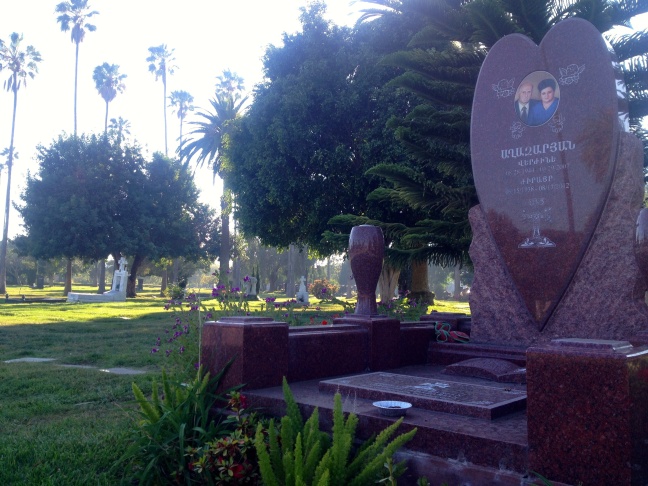How Some Graves at Hollywood Forever Have Stayed Forever Green
It’s hard to remember that the Hollywood Forever Cemetery that now plays host to James Blake concerts and showings of “Point Break” had fallen into disuse and decrepitude by 1998. But the story of how the memorial park made a recovery also underscores the patchwork history of how Angelenos think about water.
Hollywood Forever’s story really starts with Jules Roth, who was born in 1900, a year after the cemetery opened. He owned the cemetery from his mid-thirties till his death. He loved porn, hated paying bills, and feathered his nest in the hills with the proceeds from selling off two lawns at the front of the cemetery along Santa Monica Boulevard.One of the things he never paid for was connecting the cemetery to city water.
When he died, in 1998, he left the place $9 million in debt and far the worse for wear.
Present owner Tyler Cassity took over that year. Maintenance was a distant memory by that point. He says the cemetery’s 60-some acres were brown. Areas that had been maintained had not been watered by a central sprinkler system, but by those old-timey rotating sprinklers attached to long hoses.
Wells on the property had been sold off to pay some creditors during Roth’s lifetime. Afterward, water was scarce.
But there were patches of green throughout the cemetery. Cassity says they were around graves belonging to members of Hollywood’s Eastern European and Russian communities. Maintenance might have been a joke to Roth, but not to the families whose loved ones were buried there.
“They would come and water their own graves, maintain their own graves and do plantings on their own graves,” he says. “So you’d have 60 acres of no maintenance but plots that were beautifully maintained along those cultural traditions.”
Cassity says those plots helped him imagine and plan for what Hollywood Forever should become.
Image Credit: Molly Peterson/KPCC




